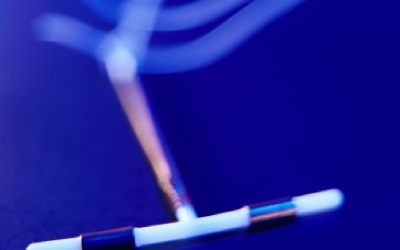Women in the US Dismiss the IUD – But Are They Right?
Choosing your method of birth control is not just an issue of sexual health, but of your overall wellbeing. There are various options to consider when choosing birth control, which you need to go through with your partner to ensure you make the right choice for you. One option up for consideration is the IUD, but, although it’s more convenient that a lot of methods, it appears to be less popular than the Pill – especially across the pond. Does the IUD have an unfairly negative reputation, or does the US know something we don’t?
Sexual wellness writer Heather Quinlan details, ‘The intrauterine device, or IUD, is a T-shaped device that is inserted into a woman’s uterus to prevent pregnancy. It can be implanted in a doctor’s office, has an amazing success rate of nearly 100%, and is the most popular form of reversible contraception in the world, with over 85 million users.’ Still, while women worldwide have accepted the IUD, only 1.3% of women in the US use the device as birth control. But why is that?
‘Many believe that the IUD is a victim of bad PR in the US, due in large part to the Dalkon Shield, a similar-looking device that was promoted as a revolutionary form of contraception in the 1970s,’ Quinlan explains. ‘Unfortunately, the Shield’s makers did not thoroughly research its potential design faults, and the infamous multifilament string (as opposed to a safer monofilament one) caused users to fall victim to pelvic infections, internal scarring and even infertility. Class action lawsuits brought against Dalkon’s A.H. Robins Company totaled over $1 billion and forced it into bankruptcy.’ So it’s not hard to see why American women are wary of the IUD, but this unjust tentativeness has led to an array of misconceptions.
However, Dr. Mary Jane Minkin, clinical professor of obstetrics and gynaecology at YaleUniversity, asserts that the IUD can be greatly beneficial to women. ‘It’s a good idea to revisit what you’re using contraceptively, says Dr. Minkin. ‘Someone with good fertility is [often] better off with an IUD.’ Moreover, if you’re a smoker, having an IUD is safer than using birth control pills. ‘There’s no doctor that would advocate smoking,’ Dr. Minkin admits. ‘But if you’re a smoker over 35, the pill greatly increases you chance of cardiac disease.’
Let’s get the skinny from some real women who have tried, and loved, the IUD. When Francesca’s, 30, marriage fell apart following the birth of her daughter in 2001, she needed a birth control method she could trust. ‘I couldn’t imagine having a child as a single mother,’ she recalls. But I didn’t want to go the drastic route of having my tubes tied. So I tried the IUD, and it worked like a charm. I didn’t have to remember to take a pill, fill a prescription every month, and one of the best things was, I didn’t get my period.’ When Francesca remarried in 2005 she decided to have the IUD removed. She details, ‘The doctors told me I could potentially get pregnant soon after it was taken out, and they were right—11 months later I had another beautiful baby girl!’
Another IUD fan is Jordan 24, who is happily using the device after an unexpected pregnancy caused her to rethink her birth control. She comments, ‘I had heard all these crazy things about the IUD, but I could never remember to take my pill on time, or I’d lose it. This led to me getting pregnant when I was 19. So I knew I needed something that could just do the job without much work from me. It’s now been three years and I’m still very happy with it—I can’t believe more women don’t use it, though I’m glad I do.’


Comments are closed.